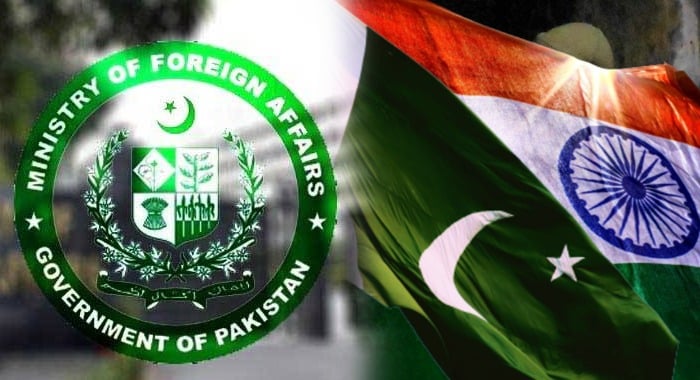The Foreign Office on Friday categorically rejected baseless claims circulated by Indian media attributing fabricated statements to Deputy Prime Minister Ishaq Dar, terming them a deliberate attempt to distort facts amid growing regional tensions. The statement came in response to Indian disinformation efforts aimed at misrepresenting Pakistan’s position following a security escalation falsely justified under the pretext of counterterrorism.
“Pakistan neither initiated any conflict nor sought a ceasefire from any party. In fact, Pakistan responded decisively to Indian aggression in full exercise of its inherent right to self-defence,” the Foreign Office spokesperson said in a sharp rebuttal to the false narratives being advanced in Indian media.
The spokesperson said Deputy Prime Minister Ishaq Dar, in his official statements and media interviews, unambiguously conveyed that Pakistan had not initiated hostilities and had responded proportionately to protect its sovereignty and national security. “Our response was clear, legitimate, and necessary in light of India’s unwarranted military action,” the statement added.
The current round of escalation was triggered after unidentified gunmen killed 26 civilians in Pahalgam, a region of Indian Illegally Occupied Jammu and Kashmir (IIOJK). Without presenting any credible evidence or conducting an investigation, India hastily blamed Pakistan for the incident—once again using terrorism allegations as a tool for coercive diplomacy and military adventurism.
On the night of May 6 and 7, under the guise of counterterrorism reprisals, India conducted air strikes on multiple Pakistani cities—an act Pakistan deemed as unprovoked aggression. In response, the Pakistan Air Force launched a robust retaliatory campaign, shooting down six Indian fighter jets, including Rafale aircraft, in a swift show of aerial superiority and strategic deterrence.
Pakistan’s response culminated in the launch of Operation Banyan Marsous on May 10—an intelligence-led, precision-targeted campaign against Indian military installations and forward airbases. The operation was executed with restraint but sent a strong message: any cross-border aggression justified under false terrorism pretexts would be met with calibrated and decisive force.
As Pakistan reasserted its red lines, India turned to international diplomacy and formally sought U.S. mediation. The White House, under President Donald Trump, facilitated backchannel negotiations resulting in a ceasefire agreement, with Saudi Arabia also playing a key supporting role.
“The roles of Saudi Arabia and the United States were instrumental in de-escalating the situation. But Pakistan’s firm and proportionate response made it clear that we would not allow false terrorism allegations to be used as cover for aggression,” the Foreign Office said.
The spokesperson stressed that Pakistan has long warned the international community about India’s tendency to exploit terrorism-related incidents to justify unilateral military action, particularly in the context of Kashmir. “India’s narrative manipulation threatens not just bilateral peace but also undermines global counterterrorism norms,” the spokesperson added.
The Foreign Office reaffirmed Pakistan’s commitment to regional peace and counterterrorism cooperation based on international law and mutual respect, while underlining its determination to defend its sovereignty against all forms of hybrid, kinetic, or disinformation warfare.
“Pakistan is a responsible nuclear state. We do not seek escalation, but any misadventure under the guise of counterterrorism will be met with forceful and lawful resistance,” the statement concluded.





